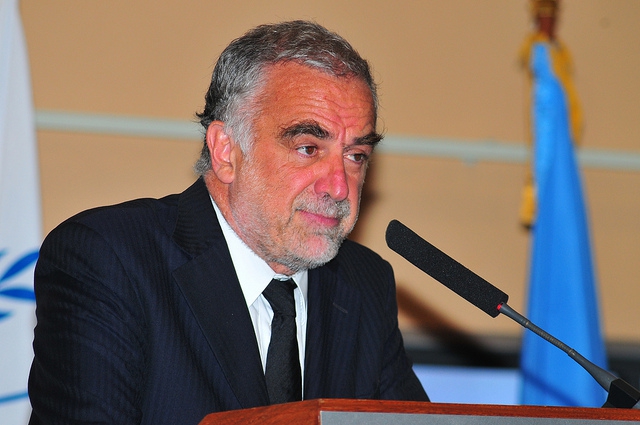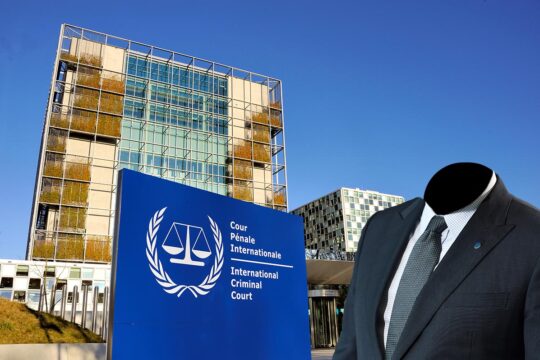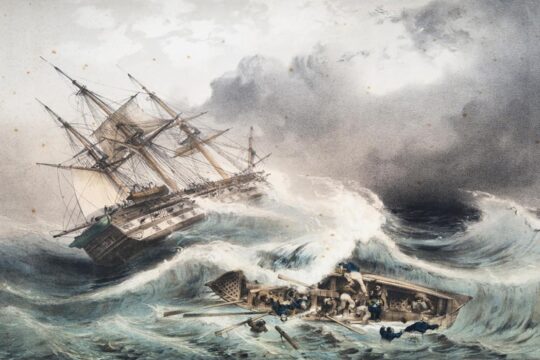A consortium of media known as the European Investigative Collaboration (EIC), of which French investigative website Mediapart is a member, has revealed certain facts that are embarrassing to the International Criminal Court (ICC). The Court has opened an internal investigation and suspended two members of staff, but the scandal focuses on former ICC Prosecutor Luis Moreno Ocampo. Apart from the questions about individual responsibility, the main issue raised by these revelations is ICC governance. Indeed, how should the ICC Prosecutor, the Court’s “sheriff”, be watched over?
When Luis Moreno Ocampo arrived in The Hague in 2003, he carried hopes for independent and ambitious international justice. On paper, Ocampo seemed ideal, and that is why he was chosen. This Argentine lawyer became well known as a prosecutor investigating corruption and human rights abuses by the military during his country’s former dictatorship.
But very quickly, Ocampo’s prosecution strategy raised criticism, whether it be his one-sided investigations into the Lord’s Resistance Army and not the Ugandan army, the arrest warrant against Sudanese President Omar Al Bashir for “genocide” or the prosecution of former Ivorian president Laurent Gbagbo but not supporters of the current president Alassane Ouattara. Indeed, the most serious allegation by Mediapart concerns Côte d’Ivoire and the fact that Ocampo, who was ICC Prosecutor at the time, asked for Gbagbo’s detention in 2011 without any judicial basis to do so.
Confiding in Angelina Jolie
Apart perhaps from that allegation, nothing so far allows us to say that Ocampo committed illegal acts, but the Mediapart articles show how the behaviour of the ex-sheriff of international justice was far from the ethical rules. Hardly had his nine-year mandate ended than Ocampo, who returned to being a lawyer, used his expertise and his contacts to help some clients who were his former targets. According to Mediapart, he worked to find an “honourable” way out for Kenyan President Uhuru Kenyatta, whom Ocampo himself had indicted for crimes against humanity! He also worked behind the scenes to get an ICC indictment against enemies of Libyan general Khalifa Haftar and protect Haftar and his men from prosecution, whereas it was again Ocampo himself who opened an ICC investigation into war crimes committed in Libya.
We are again shocked to learn of documents showing the ex-Prosecutor had offshore bank accounts in Panama and the British Virgin Islands, whereas he had been a top representative in Latin America of Transparency International, an organization that fights against tax evasion and tax havens. In short, all this points to inappropriate behaviour. It is surprising too to learn that the Prosecutor shared confidential Court information… with actress Angelina Jolie. Ocampo told her he was preparing to announce that he would not open an investigation into alleged Israeli army crimes, and sent her the document.
According to the ICC Statute, the Prosecutor must be a person of “high moral character”. In addition it says that “neither the Prosecutor nor a Deputy Prosecutor shall engage in any activity which is likely to interfere with his or her prosecutorial functions or to affect confidence in his or her independence. They shall not engage in any other occupation of a professional nature”.
These multiple revelations constitute a sort of “Ocampogate” for the ICC. But however embarrassing they may be, they do not target the current Prosecutor Fatou Bensouda, who was nevertheless Ocampo’s deputy.
“Don’t plot against the oversight mechanism!”
The EIC’s revelations have led the ICC to suspend two members of staff and open an internal investigation. According to Mediapart, a Court press officer received secret payments from a New York banker to “push” a certain case at the Office of the Prosecutor, and another ICC official shared with third parties information obtained from a Libyan prosecutor as part of that country’s cooperation with the ICC.
All this is certainly enough to demonstrate that ICC governance safeguards are not sufficient. According to the documents obtained by Mediapart, former Prosecutor Ocampo fought hard in 2010 and 2011 to limit the powers of the ICC’s oversight body, the Independent Oversight Mechanism (IOM), in the name of the Prosecutor’s “independence”, to the point that in November 2011 the President of the ICC Assembly of States Parties wrote to Ocampo telling him not to “plot too much against the IOM”!
The conduct of international criminal justice and the men and women who represent it must be irreproachable, even after the end of their mandate. Clearly no provisions have been made to this effect. In addition, the 18 ICC judges are not bound to disclose their assets. There is nevertheless no lack of qualified jurists to put in place an efficient system of administrative and financial oversight. The “sheriff” or ex-sheriff of international justice should not be able to put himself (or herself) above the law, nor lose their moral compass.






